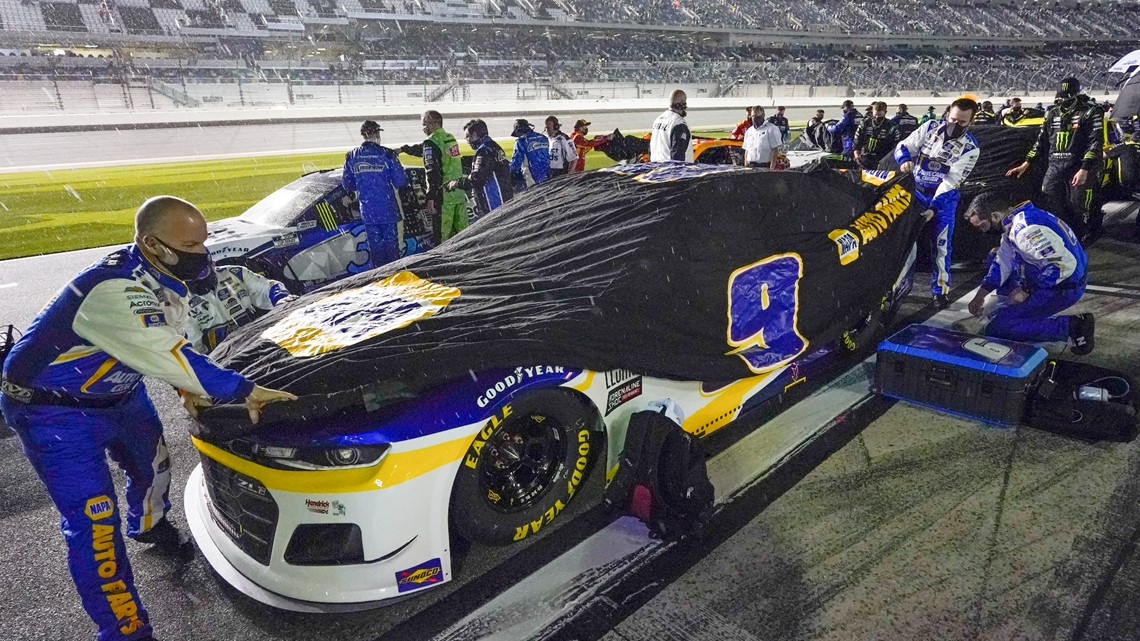CHARLOTTE, N.C. — The most anticipated stock car race of the year, the Daytona 500, has been pushed to start a day late because of a problem all too familiar for NASCAR fans -- rain.
NASCAR fans will have to wait until Monday to see who captures a win at the 66th running of "The Great American Race." Persistent rain forced NASCAR to make the decision early on Sunday hours before the green flag was supposed to drop.
It's the third time that the Daytona 500 has been forced to start on Monday and at least the 15th time the race has been directly impacted by weather. Countless other Daytona speedweeks events -- practice, other series races, etc. -- have been delayed or canceled for rain as well over the years.
If NASCAR fans feel the problem has been even worse in recent years, they would be right. Eight of the last 21 Daytona 500s have been impacted by rain in some way.
Before that, rain's impact on the race was fairly minimal. The days of "Bill France weather" seem to be long behind us.
The 2012 Daytona 500 was the first one to be on Monday, breaking a 53-year streak of the race starting on time. Rain pushed the race all the way into primetime on that Monday, ending with Matt Kenseth taking the win.
Denny Hamlin won the next Monday Daytona 500 in 2020.
Four Daytona 500s have ended prematurely due to rain. The first two happened in back-to-back years in 1965 and 1966. Fred Lorenzen and Richard Petty won those races, respectively. Michael Waltrip and Matt Kenseth took the next two rain-shortened Daytona 500s in 2003 and 2009, respectively.
Rain forced three Daytona 500s to start under a yellow flag due to wet conditions. In 1963, the field ran under caution to dry the track for the first 10 laps. The field circled under yellow for 13 laps in 1973 and 15 laps in 1979.
During the 1992 Daytona 500, the field ran under caution during the middle of the race as a rain shower moved through the track.
The Daytona 500 was red-flagged for possibly the first time due to rain in 1995. The field sat frozen for two hours before conditions bettered.
Weather played a role in a deep pothole forming between turns one and two during the 2010 Daytona 500, which caused a 40-minute delay.
The longest in-race delay in Daytona 500 history came in 2014 when the field was frozen for over six hours as rain moved through. A tornado warning was even issued for the speedway during the delay.
The most recent Daytona 500 to be delayed for rain was in 2021 when thunderstorms forced the race to be stopped for over five hours.


At least 22 summer Daytona races have been impacted by rain in some form or another. While races at Daytona are some of the most anticipated of the year, weather conditions often dampen fans' plans.

